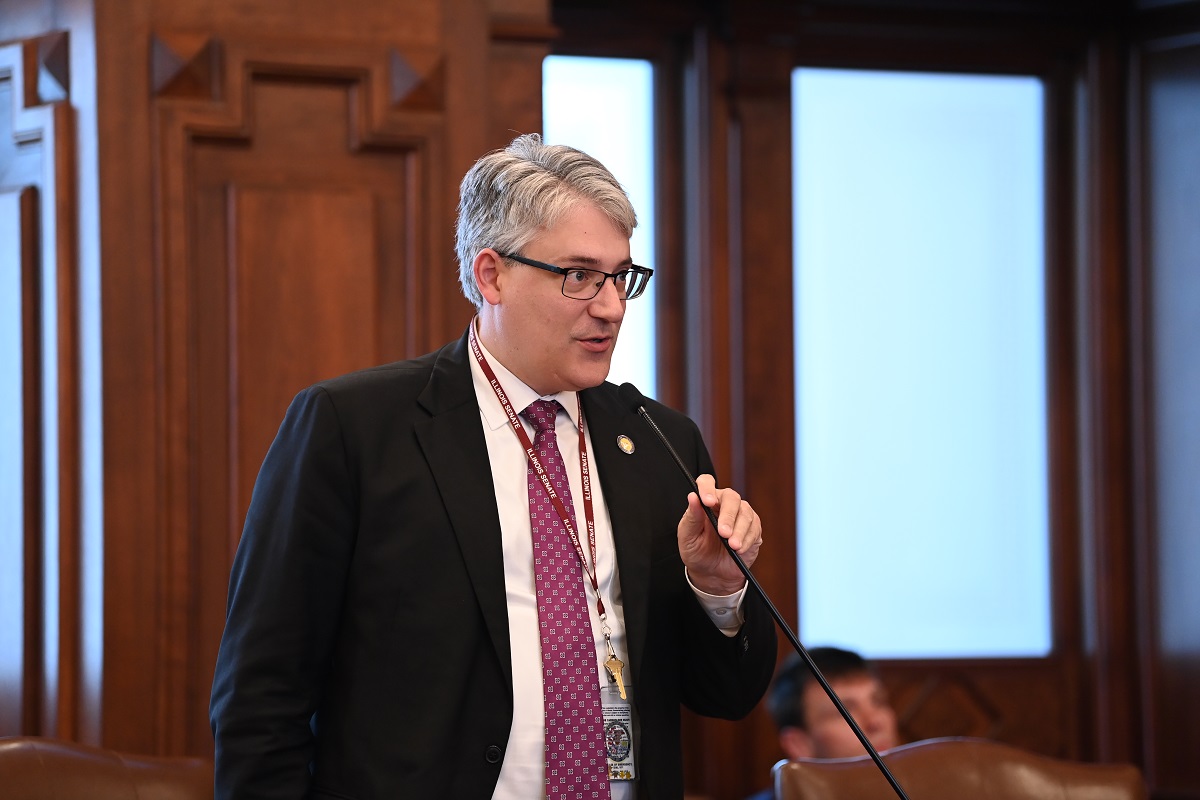- Details
- Category: Press Releases
ROCK ISLAND – Thanks to Senator Mike Halpin, the Niabi Zoo will receive $527,800 from the Open Space Land Acquisition and Development grant to provide upgrades and improvements to the zoo.
“Niabi Zoo has brought educational entertainment to my family and many others in Western Illinois,” said Halpin (D-Rock Island). “This investment supports a key community institution in Rock Island and will bring enrichment that will stick with our youth through their lives.”
OSLAD is a cost-sharing program between state and local governments that helps communities fund land acquisition and development for parks and outdoor recreation projects. It’s become one of the most popular grant programs in Illinois. Since its establishment, OSLAD has awarded $675 million for park projects throughout Illinois.
The Rock Island Forest Preserve District received $527,800 to enhance educational opportunities for families at Niabi Zoo.
"We are profoundly grateful for this investment on the part of the State of Illinois,” said Niabi Zoo Director Lee Jackson. “Through Niabi Zoo's accreditation in the Zoological Association of America and its many partnerships with zoos and wildlife experts across the country and around the world, Niabi is well established as a home for conservation and environmental education.
“Making that education accessible and entertaining for families adds to the effectiveness of our work, and that's precisely what this project will enhance,” said Jackson. “The improvements we're making would not have been feasible without the OSLAD program, and we're anxious to get started."
Visit the Illinois Department of Natural Resources website for more information on the OSLAD grants.
- Details
- Category: Press Releases

ROCK ISLAND – State Senator Mike Halpin is collecting store bought or handmade cards for residents in long-term care facilities for Valentine’s Day in order to brighten their day.
“A thoughtful handmade or store-bought Valentine’s Day card can brighten a senior’s day,” said Halpin (D-Rock Island). “In times like these, especially in the winter, we need to make sure our seniors know their community is here for them.”
Local residents are encouraged to write kind notes and drop them off or mail them to Halpin’s district office, located at 117 E. Main St. Suite 103 Galesburg, IL 61401. He is collecting cards until Feb. 11 and will deliver them to local long-term care facilities.
People with questions can reach out to Halpin’s Rock Island office at (309) 558-3612 or Galesburg office at (309) 297-4483.
- Details
- Category: Press Releases

SPRINGFIELD – In order to protect survivors, secure businesses and make Illinois safer, State Senator Mike Halpin’s law to strengthen human trafficking recognition went into effect on Jan. 1.
“I am happy to see our local governments and law enforcement given more tools to combat human trafficking,” said Halpin (D-Rock Island). “Now, if local governments see something, they can take action.”
While current law requires human trafficking recognition training at hotels, restaurants and truck stops, this legislation would give municipalities the legal authority to act if a business is not complying the training laws. In addition, the new law would allow local governments to issue fines of up to $1,500 per offense.
According to the Illinois State Police, the best outcome possible is to prevent victimization before it occurs. The two most effective ways to combat this are public awareness and education. If you see something, say something at the Human Trafficking Hotline.
ISP Safety Education Officers respond to requests from schools and public groups to present on Human Trafficking Awareness and Internet Safety. Officers teach the dangers of posting too much online and signs a trafficker may be attempting to make an unsuspecting person a victim. To request a presentation please contact the Safety Education Office at
SB 1422 took effect Jan. 1.
- Details
- Category: Press Releases

SPRINGFIELD –State Senator Mike Halpin’s law to clarify and simplify hunting license rules to the public goes into effect Jan. 1.
“Folks who are wanting to get into hunting will have an easier time acquiring apprentice licenses under this new law,” said Halpin (D-Rock Island). “This law also cleans up regulations around suspension and revocation for hunting licenses to make the process clearer to the public.”
Halpin’s law allows for hunting apprentice licenses to be renewed and clarifies rules around suspension and revocation of hunting licenses. The law will crack down on repeat offenders but lighten punishment for low level or first time offenders. In addition, the law will exclude conservation violations from juvenile expungement. Among other regulations this law will allow officer discretion in issuing summonses for violations discovered during snowmobile inspections.
According to the Illinois Department of Natural Resources, the purpose of the Apprentice License Program is to extend limited hunting privileges, in lieu of obtaining a valid hunting license, to persons interested in learning about hunting sports.
“Many hunting rules and regulations are complicated and outdated,” said Halpin. “This reform will support hunters and conservation.”
House bill 3678 goes into effect Jan. 1.
More Articles …
Page 1 of 29

